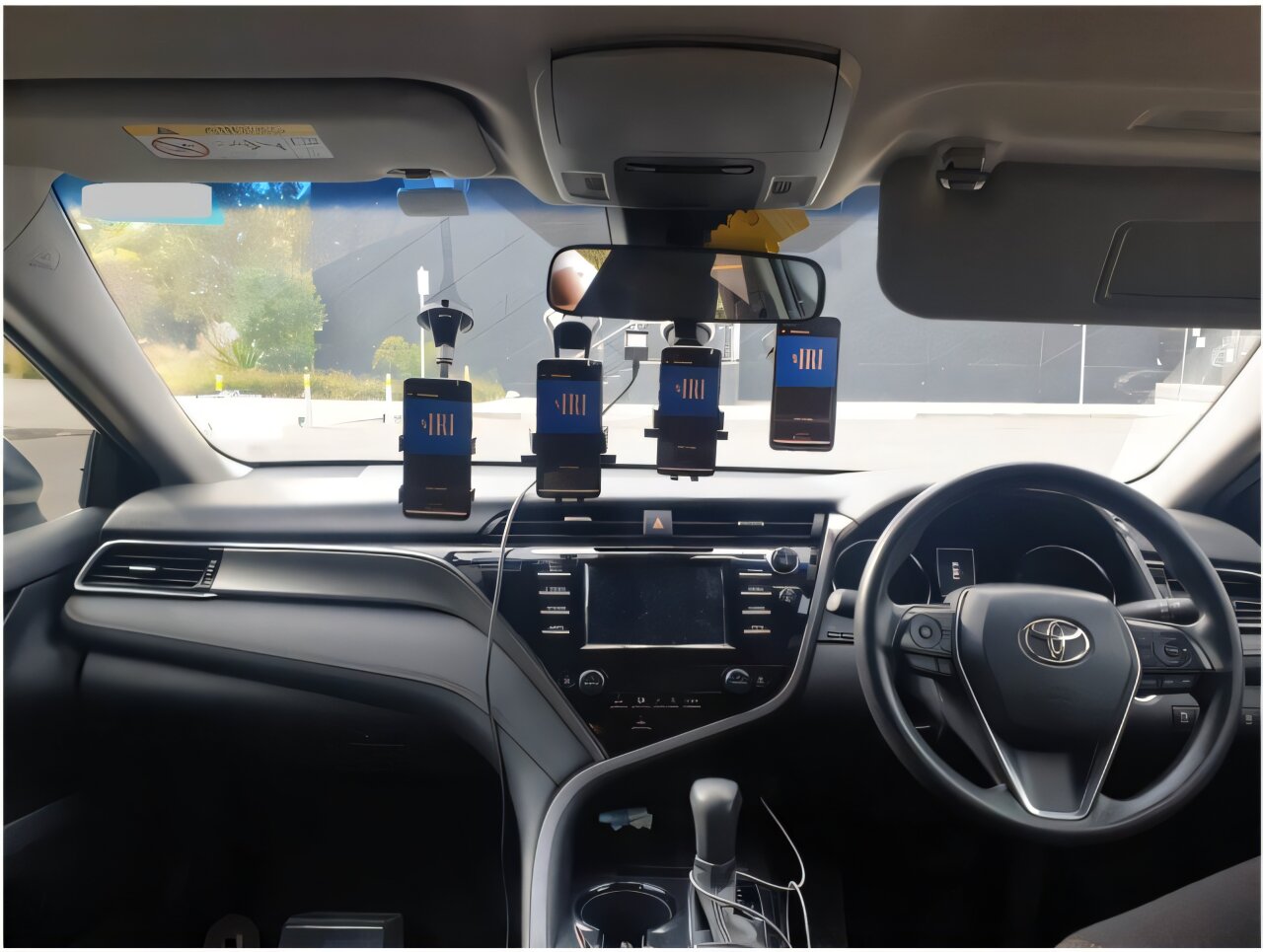Sign in with
Forget Password?
Learn more
share this!
Share
Tweet
Share
Email
September 9, 2025
by Monash University
edited by Sadie Harley, reviewed by Andrew Zinin
scientific editor
lead editor
This article has been reviewed according to Science X’s editorial process and policies. Editors have highlighted the following attributes while ensuring the content’s credibility:
fact-checked
peer-reviewed publication
trusted source
proofread
Potholes could be a thing of the past, after a team of Monash engineers found a way to use smartphones to monitor roads—a cheaper, quicker alternative to Australia’s current road survey methods.
The smartphone method doesn’t just detect bumps, cars feed footage into an app that builds a live map of road conditions across an entire city.
The Monash team led by Dr. Yihai Fang, at the ARC Smart Pavements Australia Research Collaboration (SPARC) Hub, has already trialed crowdsourcing with 22 student drivers sharing data from their phones. They now hope to expand the project in partnership with road authorities. The research is published in the IEEE Internet of Things Journal.
“The more data we get from different vehicles, phones and road conditions, the stronger the system becomes,” Dr. Fang said.
“This could one day help create a city-wide road health map powered by everyday drivers.”
Dr. Fang said around 25 vehicles were fitted with smartphones and driven along Melbourne roads over two months. The team used different types of cars and phone positions to mimic real-world conditions.
“Our research shows that smartphones, supported by deep learning models, can reliably capture road roughness data across different vehicles and mounting positions,” Dr. Fang said.
Road authorities currently use specialized survey trucks fitted with laser equipment to monitor road conditions. These provide accurate results but are costly and usually only deployed once or twice a year.
Climate change and extreme weather are placing additional stress on road networks, creating a need for more frequent checks. Affordable tools like smartphones could help provide extra data between surveys, supporting smarter use of Australia’s $15.8 billion annual roads budget, about half of which is spent on maintenance and renewal.
“By using cars that are already on the road, we can make monitoring more frequent and responsive. This could help spot problems earlier, before they turn into costly repairs,” Dr. Fang said.
More information: Ye Sang et al, Smartphone-Based IRI Estimation for Pavement Roughness Monitoring: A Data-Driven Approach, IEEE Internet of Things Journal (2024). DOI: 10.1109/JIOT.2024.3369109
Explore further
Facebook
Twitter
Email
Feedback to editors
24 minutes ago
0
18 hours ago
0
21 hours ago
0
Sep 4, 2025
0
Sep 3, 2025
0
24 minutes ago
14 hours ago
15 hours ago
16 hours ago
17 hours ago
18 hours ago
18 hours ago
21 hours ago
Sep 6, 2025
Sep 6, 2025
Oct 26, 2020
Jul 17, 2025
May 22, 2025
Mar 28, 2025
Oct 7, 2019
Feb 25, 2025
Sep 4, 2025
Sep 4, 2025
Sep 4, 2025
Sep 3, 2025
Sep 1, 2025
Sep 1, 2025
Smartphones equipped with deep learning models can reliably monitor road roughness across various vehicles and mounting positions, offering a cost-effective and scalable alternative to traditional survey trucks. Crowdsourced data from drivers enables real-time mapping of road conditions, potentially improving maintenance efficiency and early detection of road issues.
This summary was automatically generated using LLM. Full disclaimer
Use this form if you have come across a typo, inaccuracy or would like to send an edit request for the content on this page. For general inquiries, please use our contact form. For general feedback, use the public comments section below (please adhere to guidelines).
Please select the most appropriate category to facilitate processing of your request
Thank you for taking time to provide your feedback to the editors.
Your feedback is important to us. However, we do not guarantee individual replies due to the high volume of messages.
Your email address is used only to let the recipient know who sent the email. Neither your address nor the recipient’s address will be used for any other purpose. The information you enter will appear in your e-mail message and is not retained by Tech Xplore in any form.
Daily science news on research developments and the latest scientific innovations
Medical research advances and health news
The most comprehensive sci-tech news coverage on the web
This site uses cookies to assist with navigation, analyse your use of our services, collect data for ads personalisation and provide content from third parties. By using our site, you acknowledge that you have read and understand our Privacy Policy and Terms of Use.











